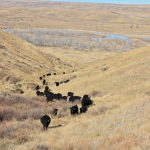H-2A employers should be informed and organized
Getting notified that government officials will descend upon your farm to check for violations concerning labor — namely H-2A workers — certainly can cause high anxiety. Although California, Florida, Washington and Georgia lead in the volume of H-2A workers, other states are seeing an increase in workers and subsequent compliance checks. Even if you only have a couple of H-2A employees and live in the Dakotas, Wyoming or Colorado, you can still be audited to see if you are in compliance with Department of Labor rules.
“Having DOL’s Wage & Hour show up at your door doesn’t necessarily mean you have a large farm,” said Warren Williams, a former U.S. Department of Labor Wage & Hour Senior Investigator and founder of WLW Consulting. “No matter how many or how few workers you have, it’s essential to make sure you are using the H-2A program correctly and be able to prove it.”
Williams said challenges continue to increase in the labor realm not only surrounding mandated wage increases but also in housing and travel. Forty percent of violations are pay-related while a substantial portion of the rest are “other” violations of Wage & Hour rules. For instance, a poorly maintained worker transfer vehicle can be a catalyst not only for hefty fines but for further investigations.
When you get a notification of possible non-compliance, they won’t just be looking at the wages. It’s not just H-2A non-compliance violation, but other agencies will start looking at safety standards, potential child labor and housing.
“When they look at an H-2A violation they will see if there are any other ones of the Migrant and Seasonal Farmworkers Program, the Fair Labor Standards Act, the Occupational Safety & Health Administration compliance rules along with state and local ordinances. Avoid those multipliers that will trigger a full investigation,” Williams advised.
BE IN COMPLIANCE
What can a farm manager or owner do to not draw the attention of those government agencies? Know the laws and be in compliance.
An investigation can be triggered by a complaint, which could come from a worker, an agency or even a neighbor. That can lead to a DOL Wage & Hour investigator showing up at your door.
“Always listen and watch,” Williams said. “See what is being reported in the media. Was there an accident involving a bus bringing workers home from the fields that had no safety features and too many riders? If you hire a contractor and if they are targeted, then your farm could be investigated, also.”
Before an investigator arrives at your farm, that investigator has already been researching your operation on social media, examining corporate records and checking your history.
“The deck is stacked against farmers because most of them would rather be out in the fields, and they are bogged down with paperwork and compliance rules,” Williams said. He explained that having your documents in order with good recordkeeping is an excellent first step to protecting yourself during a DOL Wage & Labor investigation.
The worst-case scenario for an investigator is when records are tossed in a box and the farm owner or manager tells the investigators to “take what they need.” Not only does it take an incredible amount of time to sift through the records, which doesn’t bode well for the attitude of the investigator, and if something is missing, you could be fined for not having your documents in proper order.
“We do not want to hear all the records were lost in a fire in a shed. That will not go well. If I come in and you look organized, then chances are things are organized. Get your records digitized,” Williams said. “The days of the spiral notebook are over. It will just get you in a bind. Be ready when someone comes to your door.”
Digitized records allow you to easily see where your employees are and what they are doing. Those records and services, such as FieldClock, allow employers and employees to easily track an individual’s time and work. It takes the gut feeling out of hard data.
Williams said that another benefit of properly digitized hours worked, and payroll records, is the ability to easily surface needed information yet not necessarily sharing everything about your business. For instance, you can show the investigator everyone under a specific contract only, instead opening the doors to the rest of your records.
AUDIT
If you know you’ve been selected for an investigation, plan for the interview. Williams strongly advises having an audit team that will be notified when an audit is about to happen. Even before that, however, conduct your own audit.
“Inspect the housing and vehicles semi-weekly. Correct any problems before they get out of control,” Williams said. “You absolutely need to have your payroll audited and ready.”
When you are notified about an impending investigation, call an attorney who can help you handle what you will need to do. During the investigation, minimize what you say. Don’t admit to violations, simply show the requested documents.
Ensure that the field supervisor knows who to call when an investigator shows up. It’s wise to assign someone who understands your business to travel around your farm with the investigator.
Williams said mutual respect is paramount to having an investigation run smoothly. “Remember, the investigator does not have to come to you before starting the investigation, but respectfully, he should. Do not be hostile. Respect works two ways.”





